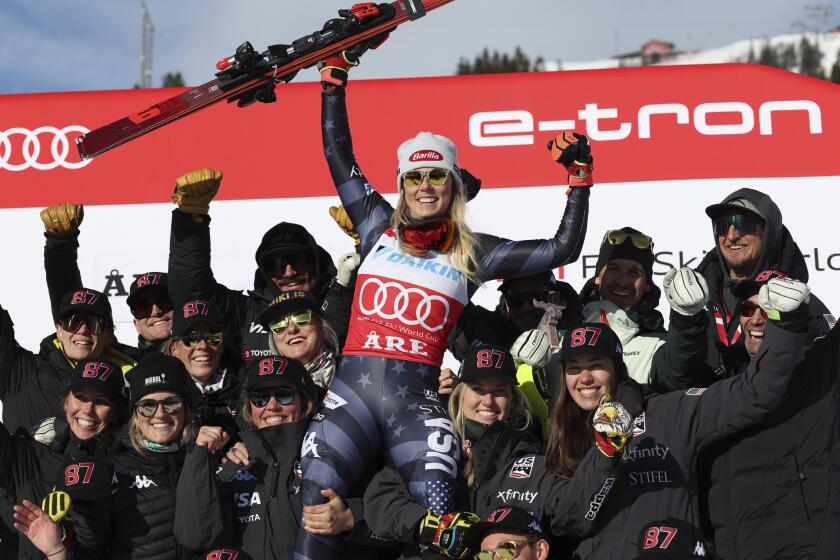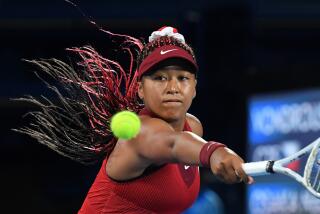Column: Mikaela Shiffrin isn’t short on motivation amid push for World Cup titles record
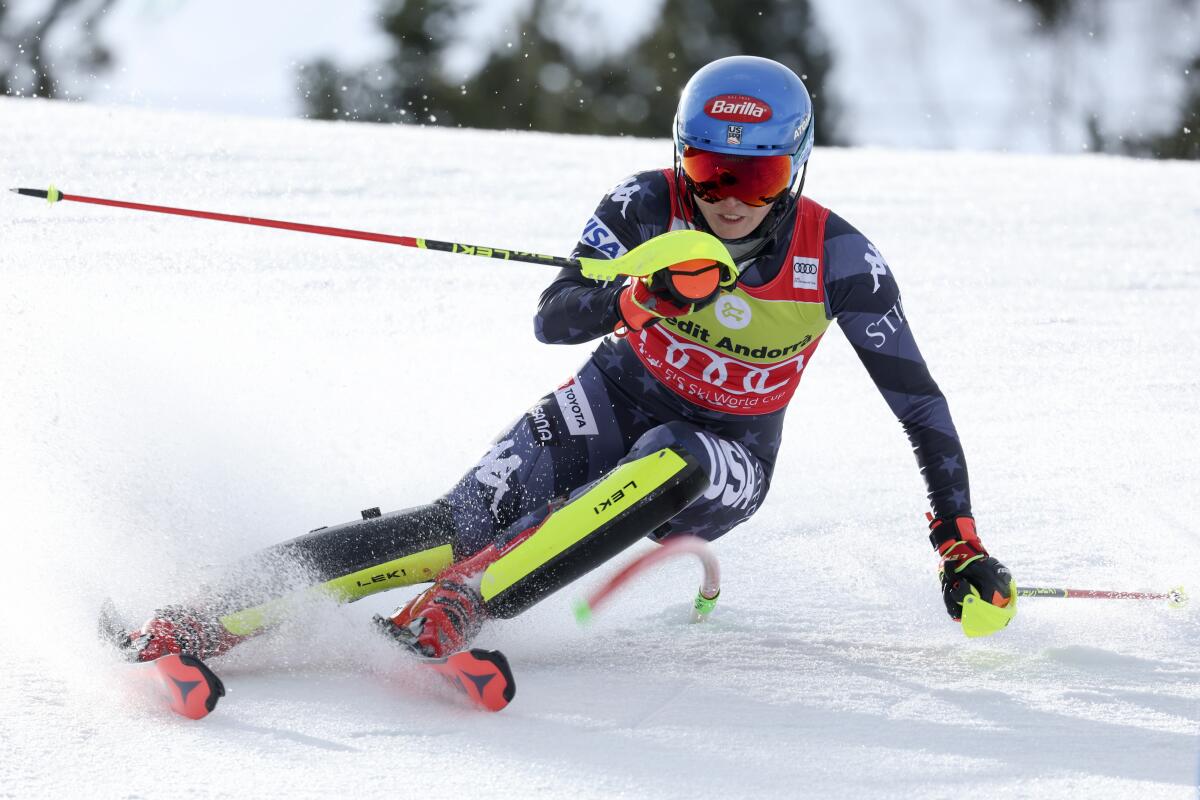
- Share via
Mikaela Shiffrin can’t remember exactly where or when she met Annemarie Moser-Proell, the Austrian legend who dominated women’s World Cup alpine skiing in the 1970s and won six overall titles, tops among female skiers.
But Shiffrin clearly recalls that Moser-Proell saw in her a greatness Shiffrin wasn’t sure she possessed, even as she was evolving from a teenage prodigy to a consistent World Cup medal contender and champion.
“At the time, I wasn’t anywhere near a threat to any of the statistics and records and titles that she won and records she set and all of her stats,” Shiffrin said. “She said something to me like, ‘You just go for it and you’re going to pass me.’ It was just pretty striking to me that her mind was already there at a time when nobody else’s was. That was just kind of wild and a pretty cool experience.”
American skier Mikaela Shiffrin set the World Cup record for most career wins at 87 with a slalom victory Saturday, breaking a tie with Ingemar Stenmark.
Moser-Proell knew what she was talking about. Shiffrin, 28, will start her World Cup season Saturday in Soelden, Austria. She can end it tied with Moser-Proell in overall titles, which Shiffrin acknowledged would be her biggest accomplishment. “That would be insane,” Shiffrin said Thursday during a videoconference.
For Shiffrin, last season was about resetting records. She prefers “resetting” to “breaking,” because she doesn’t want to diminish the achievements of those who preceded her. But no matter how she phrases it, she had a spectacular season.
In January she passed Lindsey Vonn’s women’s record of 82 alpine World Cup wins, and two months later she surpassed Ingemar Stenmark’s career record for men and women by earning her 87th World Cup victory. She finished the season with 88 World Cup wins — including a women’s record 21st career giant slalom victory — a record 138 top-three finishes, and her fifth crystal globe as the overall champion.
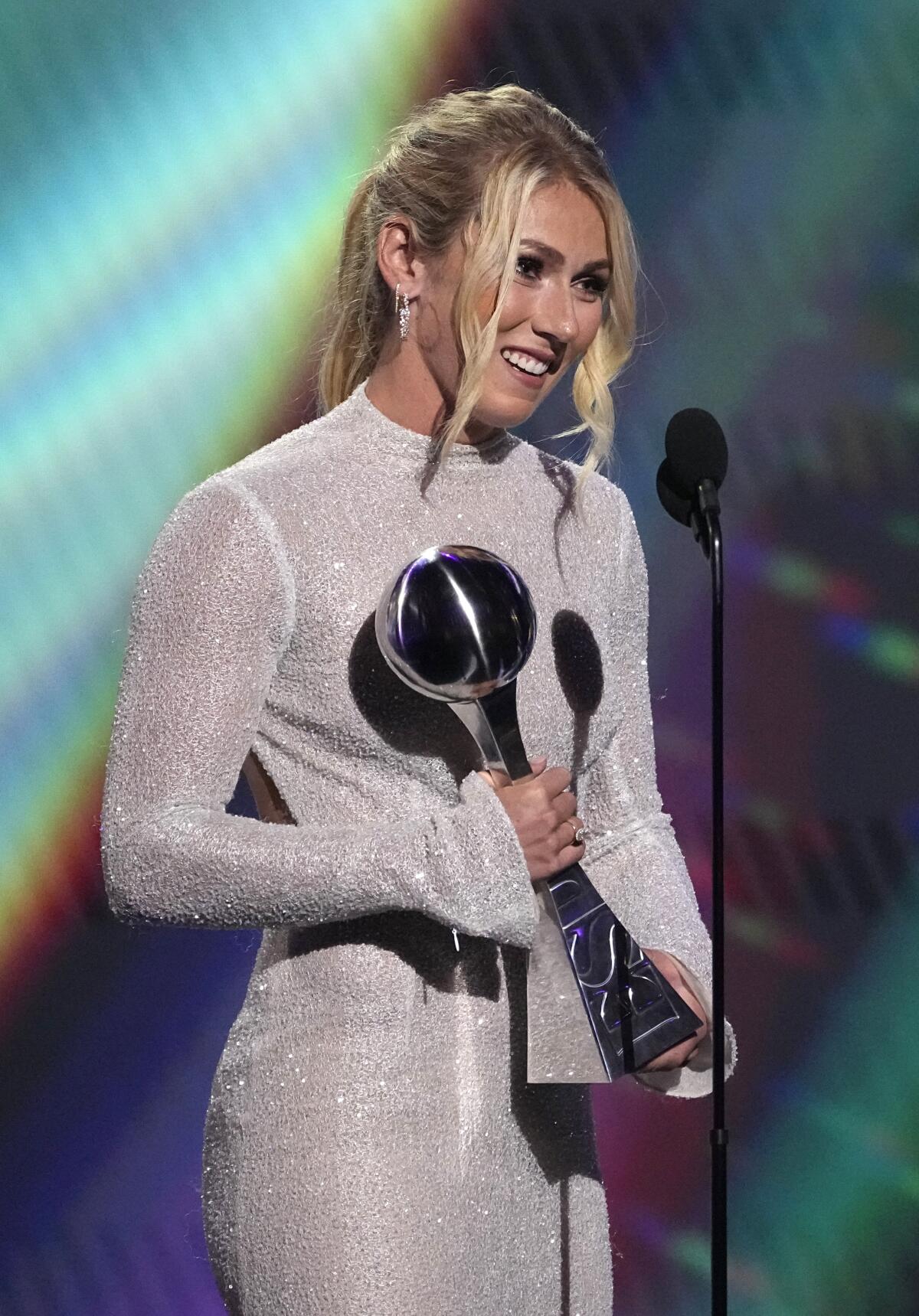
And she’s not nearly done, as evidenced by her willingness to take risks and shake up her routine instead of falling into the tempting but dangerous trap of complacency.
“Motivation-wise, I wouldn’t say anything has changed,” she said. “It’s a little bit of a funny place to be in. I wasn’t shooting to reset the record and then that happened last year and it was like, everyone was wondering if I was going to lose motivation. But I was like, why should I lose motivation after accomplishing something that I never truly set out to accomplish, as opposed to a fifth overall globe, which was something that I was kind of shooting for?
“If anything, that just makes me want to fight again this year and be in the running for the race for the overall globe again, because that’s always been one of my biggest goals, That motivation doesn’t change because it just kind of resets every year, and that’s where my head’s at.”
She has shown she’s not afraid to switch things up in her quest to get faster.
After her sensational season she took the surprise step of parting with her coach of seven years, Mike Day, and hiring Norway native Karin Harjo. Crediting Day for her success and careful to avoid criticizing him, Shiffrin said Harjo introduced ideas for data tracking on her equipment, which Shiffrin had wanted to try for a while. “It was just time for a transition,” she said.
She also plans to compete in a few more speed events — the downhill and super-G — than in the past, a plan made possible by a schedule that’s relatively loose because of the lack of world championship or Olympic competition.
Shiffrin traveled to Austria for the season opener eight days earlier than in previous years in hopes of recovering from jet lag quickly enough to get in some quality training. She’s feeling fine, but the weather hasn’t cooperated.
“I’m skiing well but I have to say, there’s not a lot of snow,” she said. “So we’re navigating small patches of snow between a lot of rocks.”
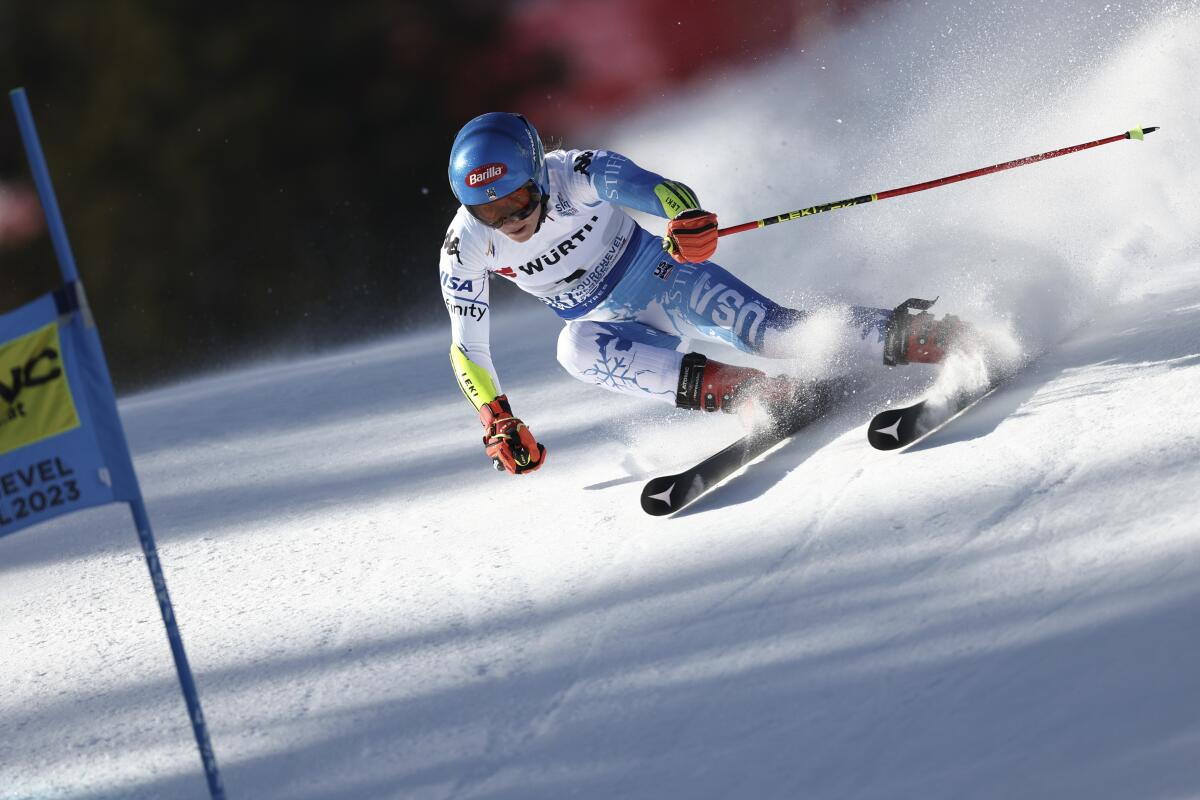
She’d like her performance in Soelden to set a positive tone for the rest of her season, but after getting past a bout of food poisoning during the team’s training camp in Chile and another mysterious illness that kept her in bed when she went home to Colorado, she’s allowing herself the luxury of gradually regaining her fitness and refining her form.
“I’m not as worried about starting the season off as strong as I can be. I feel like it’s OK to build into my highest level of skiing throughout these first weeks of competition,” she said. “I think there was a lot that I learned from last season. Kind of building into the season. This year I’m trying to take a little bit more of an approach of giving myself time to build into my best form.
“And if I feel amazing on Saturday, I’ll take it. I’m not going to complain about that. But getting into the race season, it’s always a strange feeling. It’s like learning how to walk again, or learning how to swim again.”
It’s not how you start that matters — it’s how you finish. Moser-Proell said Shiffrin would finish as the best ever, and Shiffrin has done everything possible to prove her right.
More to Read
Go beyond the scoreboard
Get the latest on L.A.'s teams in the daily Sports Report newsletter.
You may occasionally receive promotional content from the Los Angeles Times.

